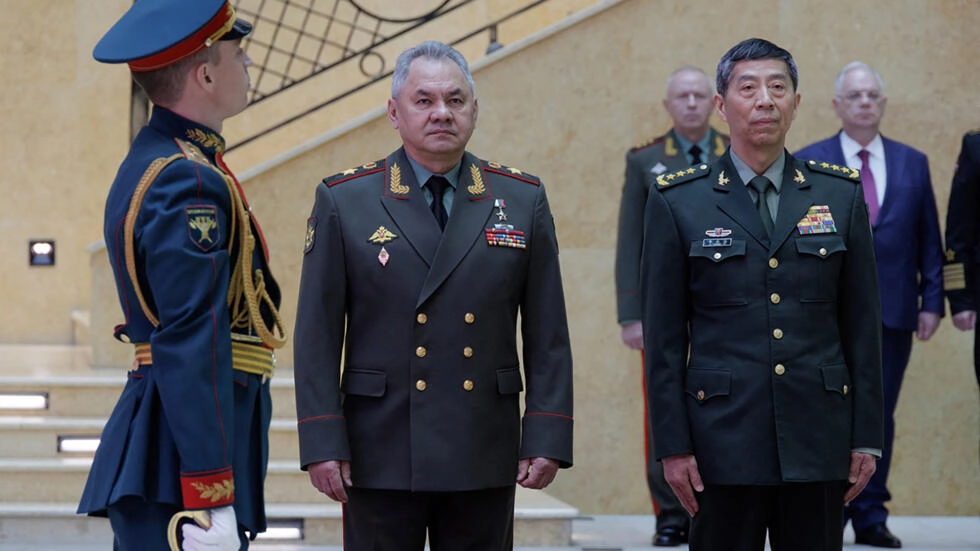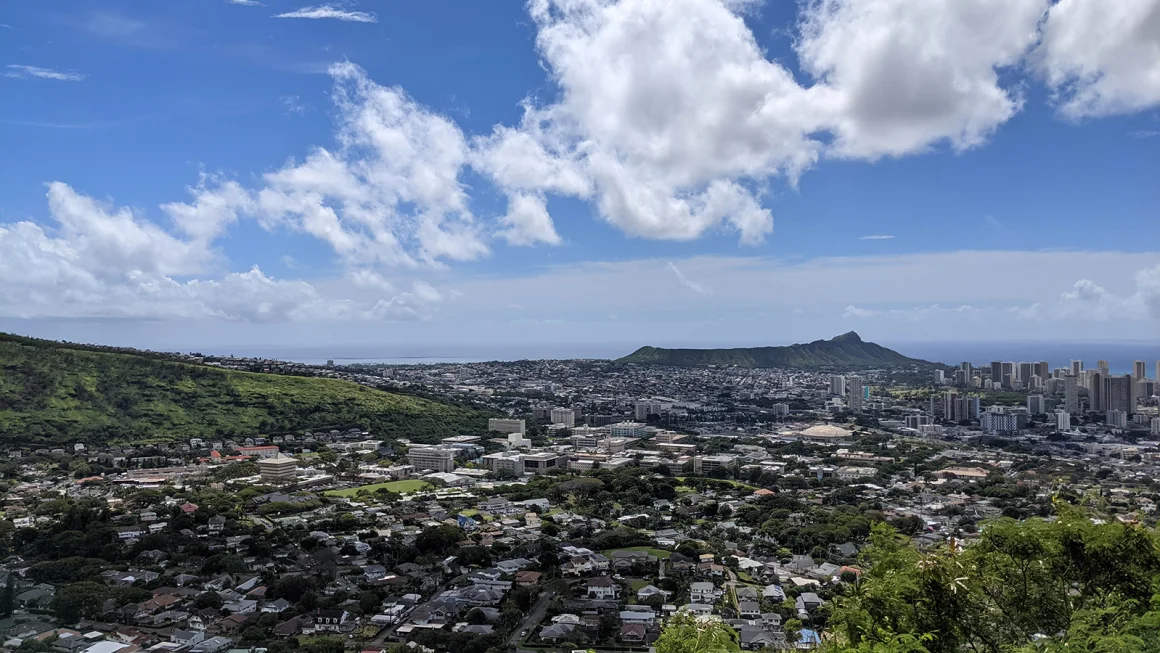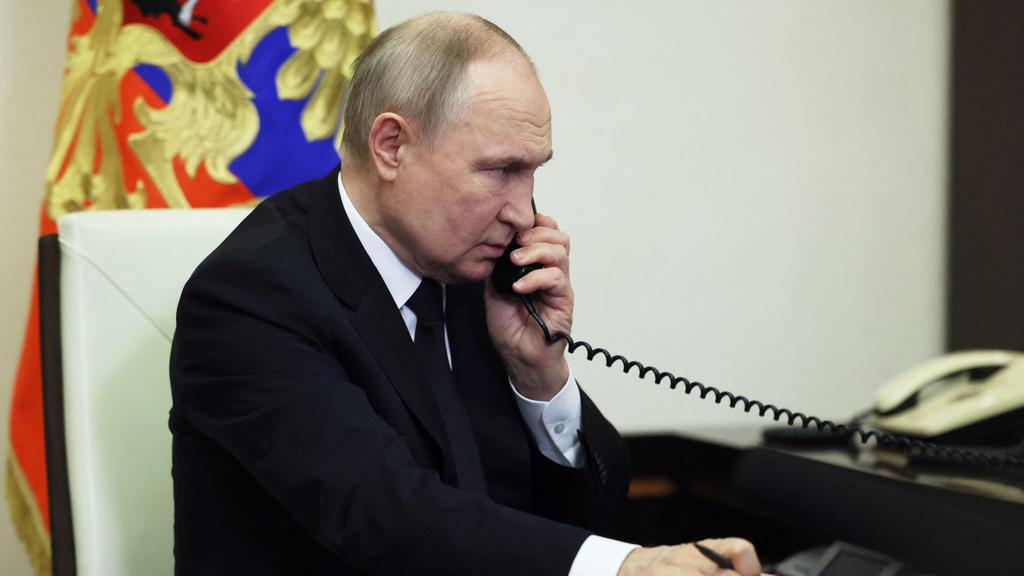This article is more than
2 year oldIf the West doesn’t awaken, this is a moment our world could change forever
Few things have been more telling than the reaction of key countries to the Russian army poised on Ukraine’s borders.
Britain and America have sent antitank and anti-aircraft missiles but no troops. Germany has been reluctant even to threaten sanctions, should Russia invade. And in shades of Munich, France has championed a peace deal based on changing the Ukrainian constitution to meet Russia’s demands.
In trying to extract a pledge from his smaller neighbour that it will never join NATO, the Russian president is exploiting the universal fear of war in an attempt to dictate the policy of NATO and to smash the independence of Ukraine.
He’s relying on everyone’s unwillingness to take risks for someone else. And so far, he’s succeeding; the Europeans and the Americans are divided and the West looks impotent.
The only ones to emerge with much credit are the Ukrainians themselves, who’ve manned their defences and insisted on their right to conduct an independent foreign policy, including joining NATO and the EU.
Putin’s campaign will continue
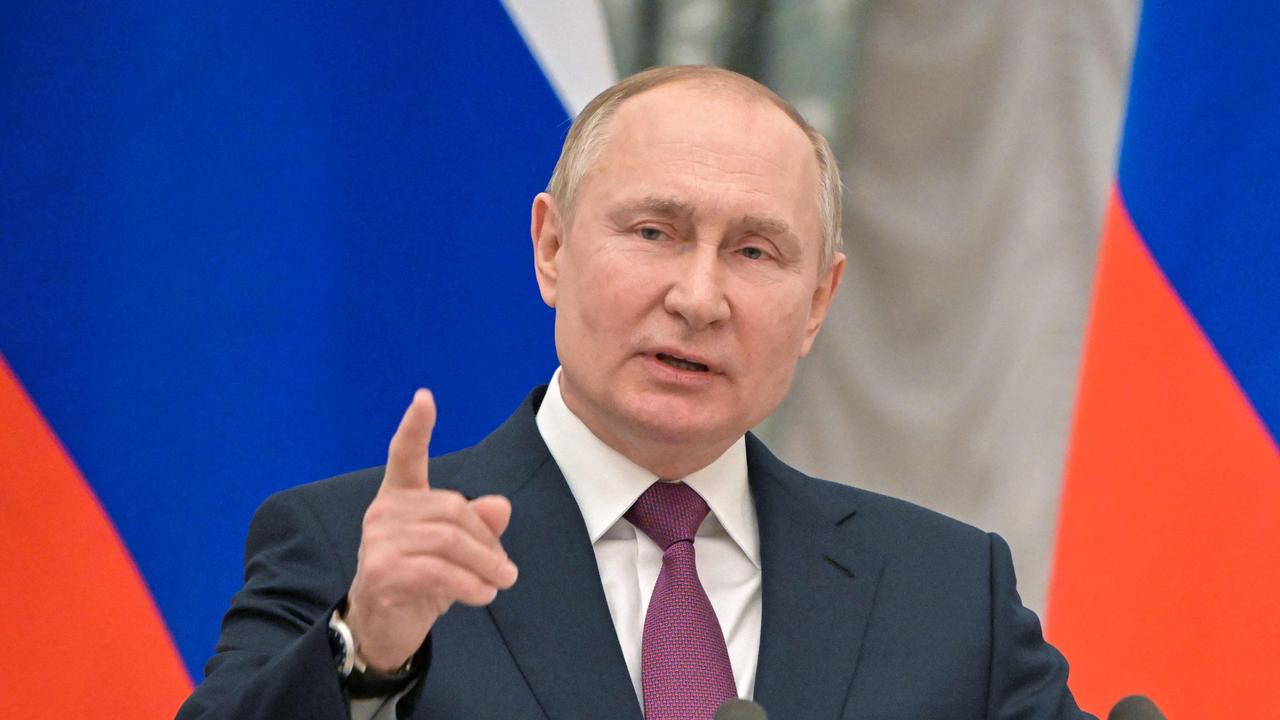
But regardless of how this particular episode plays out, let’s be under no illusion. Vladimir Putin sees himself as the new Tsar, a ruler for life, determined to restore greater Russia.
To that end, he’s invaded Georgia, annexed the Crimea, occupied the Donbas, killed-without-compunction opponents at home and abroad, and restored Russia as a military superpower despite an economy smaller than Italy’s.
Ukraine is but his present target, because it persists in looking west not east; and because the 1994 Anglo-American security assurance, named for this very city, in return for the surrender of Soviet-era nuclear weapons, failed to replicate the one-in, all-in provision of Article 5 of the NATO Charter.
However the current stand-off ends, we can be confident that Putin’s campaign will continue, remorseless, relentless, by all means up to and including all-out-war, until Ukraine becomes a Russian colony.
And then his attention will turn to the Baltic States, and then to Poland, and then to the other former Soviet satellites, until Russia is again the overlord of Eastern Europe.
‘You are not native Australian but I am a native Russian’
I fear the only thing that will stop him is death, defeat, or the conviction that he would lose.
On what do I base that?
Well, after a Russian missile battery shot down MH17 over the eastern Ukraine, killing 38 Australians, I promised to “shirt-front” the Russian president – it’s an Australian sporting term for a rough tackle.
I had that very robust conversation with him on the sidelines of the APEC summit in Beijing in 2014. With rare intensity, he insisted that Ukraine was really Russian and that their government was fascist or worse – and that provocateurs had brought down the plane.
And then he grabbed me with both hands and said something both strange and revealing: “you are not a native Australian”, he said, “but I am a native Russian”.
It’s this passion for blood and soil and sacred mission that drives my sense that he’s ready to take big risks, to restore the Russia of his dreams, especially against weakness and vulnerability.
Of course, Putin is not Hitler, and Ukraine is not Czechoslovakia, and these are not the 1930s, but there are plenty of disturbing parallels, including a new “axis” of great powers ready to disturb the peace to get what they want.
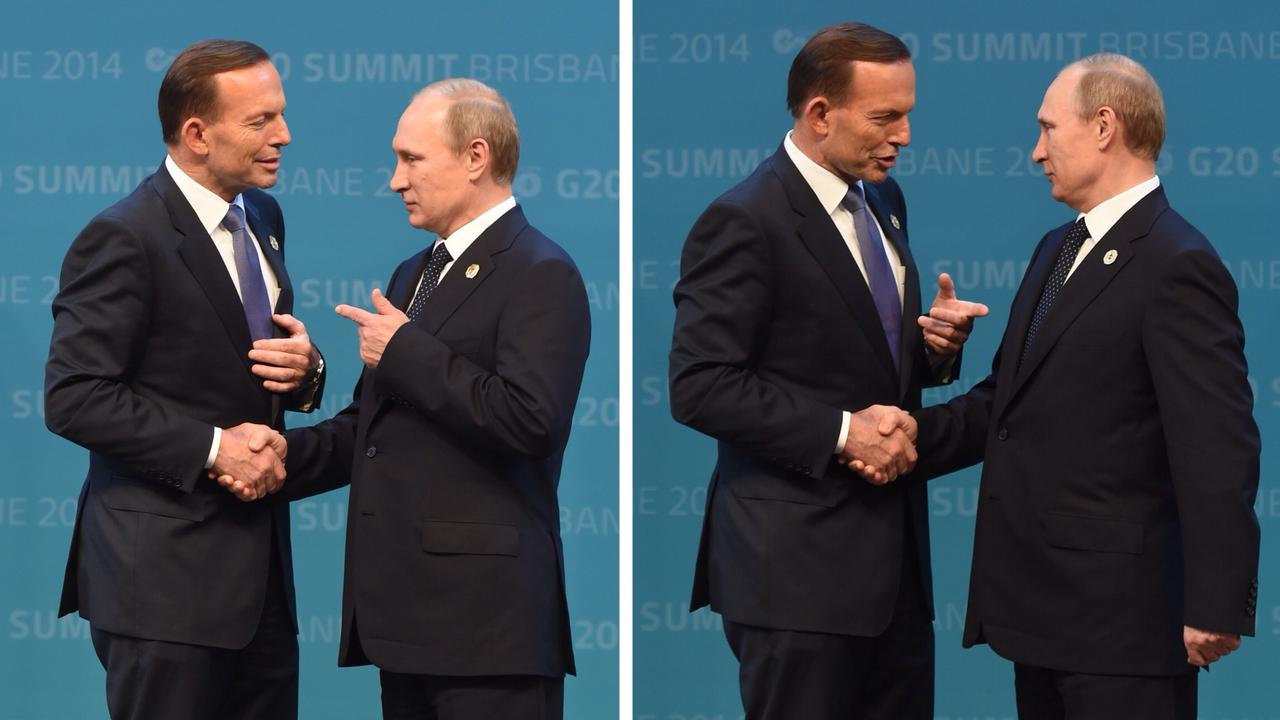
Moscow-Beijing axis rejects American-backed world order
A fortnight back, the Russian dictator and his Chinese counterpart, Xi Jinping, issued a declaration on “International Relations Entering a New Era”. We know the type of new era they have in mind from their preposterous claim that both Russia and China enjoy “longstanding traditions of democracy”.
This would be news to the jailed Russian opposition leader Alexei Navalny, and to the jailed Australian news anchor Cheng Lei, and to the tennis star Peng Shuai now doomed to life in a cage.
For Beijing, ”democracy with Chinese characteristics” obviously covers the internment of more than a million Uighurs, the strangulation of Hong Kong despite the solemn promise of one country, two systems, and the near daily intimidation of Taiwan, a genuine democracy that proves there’s no totalitarian gene in the Chinese DNA.
Not for nothing has China built what’s already the world’s largest navy, plus a militarised coast guard, plus a maritime militia, and achieved what many defence planners think is military superiority over the United States in the Western Pacific.
The main purpose of this joint declaration, this Moscow-Beijing axis, is to bury, they say, the “political and military alliances of the Cold War era” – so no more NATO, no US troops in Japan and South Korea, and ultimately an end to the Pax Americana – through a dictators’ partnership that has, they say, “no limits” and no “forbidden areas of co-operation”.
The Molotov-Ribbentrop pact, maybe it’s not; but it’s definitely a free hand from each, for the other to do its worst.
At heart, what they both reject is the American-backed world order, a liberal and humane set of understandings and arrangements, that’s enabled the very best time in human history; with the world’s people more free, more safe and more prosperous than ever before.
Even though they’ve both befitted from it, with half a billion Chinese moving from the third world to the middle class in scarcely a generation, after President Clinton bent the rules to admit China to the WTO; and with Russia becoming a petro-power that can turn Europe’s energy on-and-off like a tap.
For years, American officialdom ignored the Chinese leadership’s much- stated intention to be the world’s top country by mid-century; only for the secretary of state, just a week ago in Melbourne, belatedly to declare that China’s goal was indeed global domination.
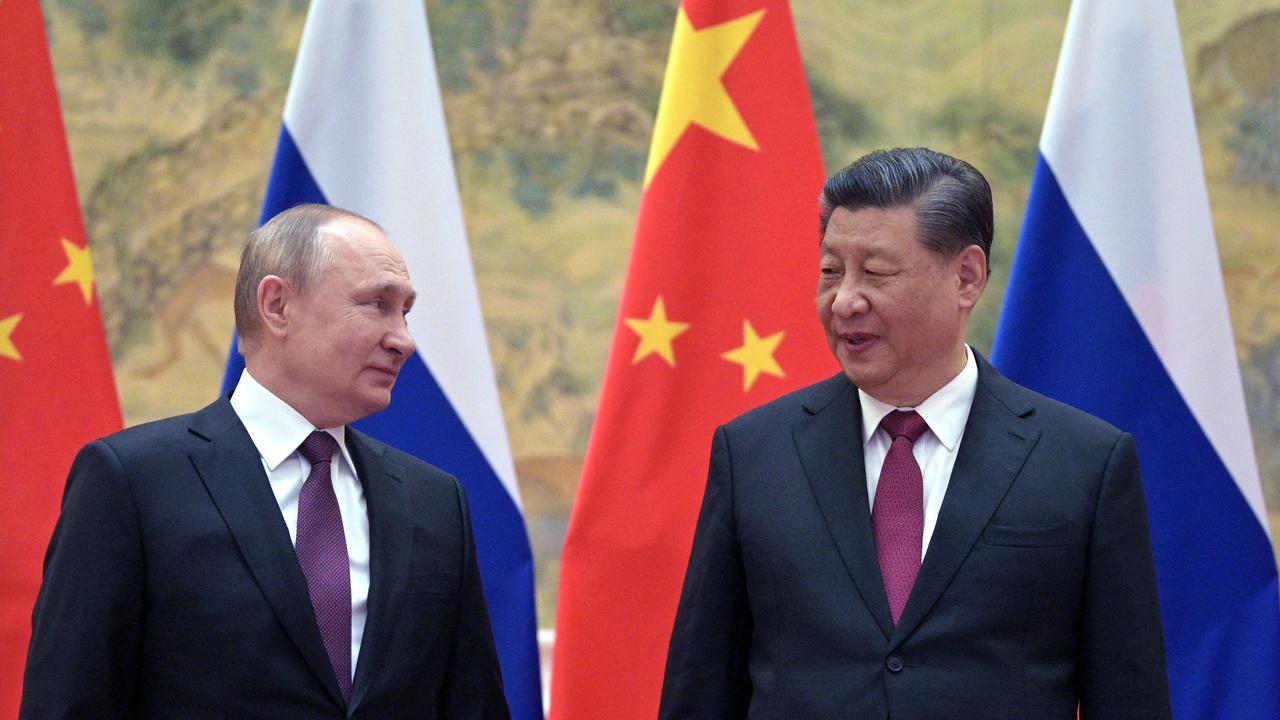
Military crisis must awaken the West
So, with these latter day dictators clearly on the march, as Lenin once asked: what is to be done?
In his celebrated speech attacking the Munich sellout as a “defeat without a war”, Winston Churchill declared that this was but “the first foretaste of a bitter cup which will be proffered to us year by year, unless by a supreme recovery of moral health” – let’s underline that – “moral health” he said, “and martial vigour, we arise again and take our stand for freedom, as in the olden time”.
A response to the dictators starts with appreciating that just because war is unthinkable to us, doesn’t make it unthinkable to them.
Since the beginning of time, the strong have always been tempted to take advantage of the weak; and the tough and the hungry have always sought to usurp the indolent and the soft.
Throw in what Hume recognised, that passions drive reason, and what’s unthinkable to most can become entirely reasonable to some, especially those on a quest for national glory.
As their current adventurism shows, both countries’ exceptionalism still includes the conviction that they should dominate their regions, if not the wider world.
As the five decades after 1945 show, the only way to keep aggressors at bay is collective security; otherwise, the strong do what they will, and the weak suffer what they must.
Take Eastern Europe: if it’s Russia against Ukraine, sooner or later, Russia will prevail; as Russia ultimately did against Finland in 1940.
Take East Asia: if it’s China against Taiwan, China will inevitably prevail.
But if it’s Russia or China versus the democracies, one for all and all for one, that’s an entirely different matter.
Perhaps this military crisis might awaken the people of Western countries, so recently discombobulated by a virus, and so unaccustomed to sacrifice, to how readily a freedom that’s not cherished and defended can be lost.
This is starting to dawn on us in Australia.
Australians are accustomed to answer the call, all over the world, because we’ve always known that deterring aggression means letting the aggressor know that their targets aren’t alone.
And as history shows, the best way to make potential aggressors think again is to have a contingent of allied soldiers in place, so that an attack on a relatively weaker country means engaging the forces of relatively stronger ones.
At the very least, NATO should be ready substantially to reinforce its frontline states and to supply the Ukrainians with whatever they need to fight on.
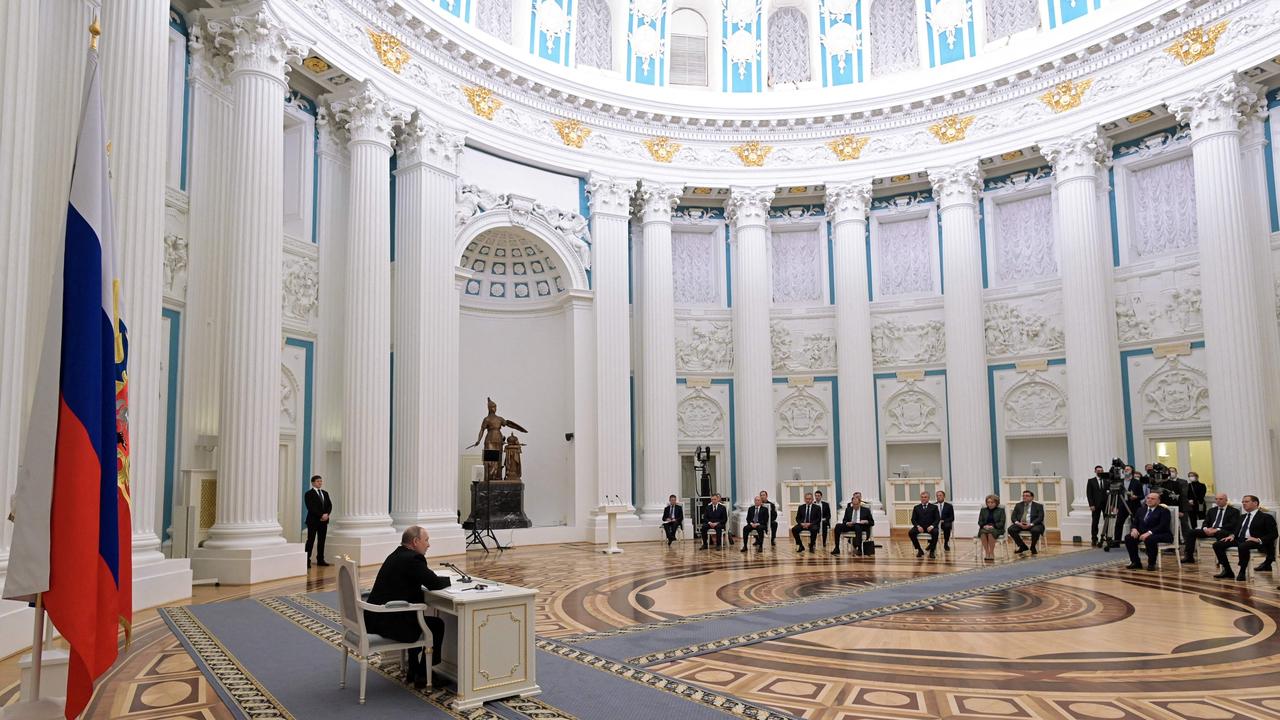
The point of this would not be to threaten Russia or China with offensive weapons; just to remind bullies of the natural solidarity that should exist between countries striving to be free.
We have to make the war that’s unthinkable to us, for moral reasons, unthinkable to them for prudential reasons. We who shrink from war because it’s morally wrong have to make others shrink from war because they’d likely lose.
Of course, our instinctive initial reaction is to avoid entirely “quarrels in far away countries between people of whom we know nothing”.
Yet what other countries’ freedom might be dispensable, if theirs is? And who would we fight alongside, if not them? And if others’ fights aren’t ours, who might help us, when our turn comes?
Even now, I’m not sure how widely it’s grasped what’s at stake in this confrontation between democracy and autocracy, between sovereignty and subservience – and how the whole trajectory of history could change.
If Russia seizes Ukraine, a new iron curtain will ring down in Europe.
If China exploits the confusion to seize Taiwan, the whole world order would shift against the democracies, as Indo-Pacific countries made the best deal they could with the red superpower, or armed themselves to the teeth against it.
It would be a poorer, harder world.
At the least, in these more ominous times, countries need to end their energy dependence on Russia – as well as their dependence on China in critical supply chains – and to renew collective self-defence to the point where no aggressor could think war worthwhile.
Meanwhile, comrades Putin and Xi watch the scuttle from Kabul, because a long-term military presence was judged to be too hard; the toppling of statues, because yesterday’s heroes have to be damned by today’s standards; and our self-flagellation over race and identity, even though there’s never been less racism, and minorities have never had a fairer go, and conclude that a decadent West is unlikely to defend itself with vigour, let alone stand up for others.
They see America in retreat, and no other country or collection of countries with strength and goodwill sufficient to be the guardian of peace with freedom.
For all of us as individuals and for each of our countries, the challenge is to prove them wrong.
This is an edited extract from Tony Abbott’s speech to the Danube Institute in Budapest on Monday
Keywords
<p>Chinese officials say they "firmly oppose" the platform being divested.</p>
Tumultuous Trump trial day ends with 12 jurors, 1 alternate selected
TikTok ban now ‘inevitable’
Ukraine ‘will have a chance at victory’ with new US aid, Zelenskyy says
Israel Launches Retaliatory Strike Against Iran
Apple deletes WhatsApp, Threads from China app store on orders from Beijing
Israel Iran attack: Damage seen at air base in Isfahan
Who will be Trump’s VP? A shortlist
‘URANIUM’: Terrifying detail about Israel’s strike on Iran emerges
US vetoes Palestinian attempt to gain statehood at the United Nations

